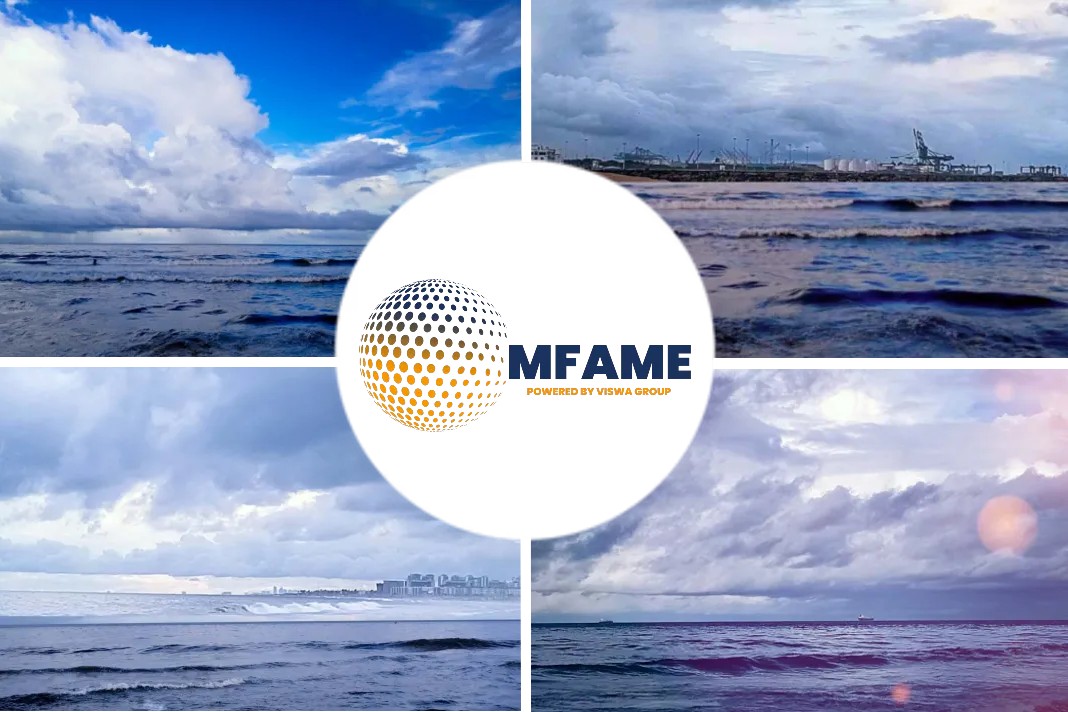- Over 100 containers fall off Zim Kingston, another 10 catch fire onboard.
- The more stuff people buy, the more ships ply the Pacific Ocean loaded to the brim with containers.
- Even if there is little environmental impact, fallout from the Zim Kingston casualty will be significant.
Over 100 containers fall off Zim Kingston, another 10 catch fire onboard, says an article published on freight waves website.
More stuff people buy, the more ships ply the Pacific Ocean
The more stuff people buy, the more ships ply the Pacific Ocean loaded to the brim with containers. Combine rough weather, the occasional human error and way more chances to get it wrong, and you inevitably get more accidents at sea.
Containers falling overboard
A record number of containers fell overboard from ships into the Pacific last winter, coinciding with the import surge. A leading theory on this month’s oil spill off Southern California is that a container ship dragged its anchor over a pipeline during a severe storm in January, and months later, the pipeline finally gave out.
The container ship Zim Kingston lost around 40 containers in heavy seas on Friday. The next day, containers aboard the ship caught fire.
Zim Kingston casualty
The 2008-built Zim Kingston has a capacity of 4,253 twenty-foot equivalent units. It is owned by Danaos Corporation and is on long-term charter to Zim at a rate of $25,500 per day through April 2023.
As the ship sailed toward Vancouver with a full load on Friday, it was initially reported that around 40 containers fell overboard at the mouth of the Strait of Juan de Fuca when “the ship listed to its side due to rough seas,” said the U.S. Coast Guard.
Following the loss of boxes, the Zim Kingston weighed anchor off Vancouver Island’s port of Victoria. On Saturday, a fire broke out within containers onboard the ship. The Canadian Coast Guard said that at one point, 10 containers were on fire, two of which contained potassium amylxanthate, a hazardous material used in mining.
Sixteen crewmembers were evacuated; five remained on board. The Canadian Coast Guard set an emergency zone within one nautical mile of the ship Saturday, warning that the fire was “expelling toxic gas” and reporting that another two containers had fallen into the sea.
On Sunday, Transport Canada restricted all drones and aircraft from coming within two nautical miles of the accident.
MarineTraffic ship-positioning data showed three vessels assisting with firefighting on Sunday: the towing vessel Seaspan Raven and offshore supply vessels Maersk Trader and Maersk Tender.
The Canadian Coast Guard explained that “overnight, the Seaspan Raven cooled the hull by spraying the hull with cold water. Due to the nature of chemicals onboard the container ship, applying water directly to the fire is not an option.”
During a press conference late Sunday, Canadian Coast Guard representatives said the fire was “smoldering.” On Wednesday, it revealed that the number of containers falling overboard was much higher than previously reported: 109.
Fire fallout
Even if there is little environmental impact, fallout from the Zim Kingston casualty will be significant. Shippers with undamaged boxes aboard the vessel face very lengthy delivery delays.
The ship itself will likely be out of service for an extended period, which will negatively impact Zim’s Q4 2021 throughput.
From a broader market perspective, incidents like the Zim Kingston casualty are having a much greater knock-on effect than in the past.
Lars Jensen, CEO of consultancy Vespucci Maritime, told American Shipper in a previous interview, “You always have a vessel that broke down. You always have a port strike somewhere. I wouldn’t say you always have a vessel on fire, but unfortunately, that also happens fairly frequently. Normally, that’s a local problem. Cargo gets delayed a little bit or that cargo is shifted onto another service”.
“But now, there are no other vessels. They’re all soaked up — you can’t put a replacement vessel in. And shifting the cargo to the next ship is out of the question, because they’re already booked solid. So, right now, with every additional operational mishap, you’re adding more cargo to the pile of cargo you can’t move that you’re pushing in front of you and things are just getting worse.”
Did you subscribe to our daily newsletter?
It’s Free! Click here to Subscribe!
Source: freight waves

















